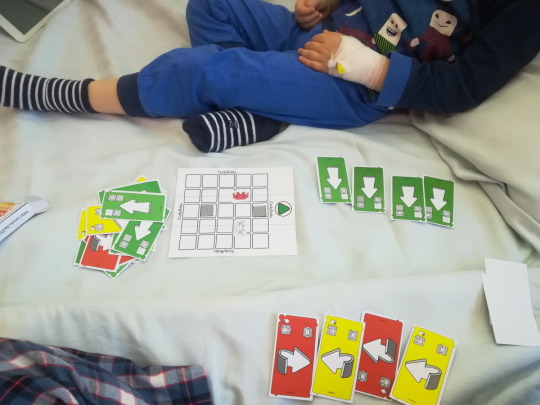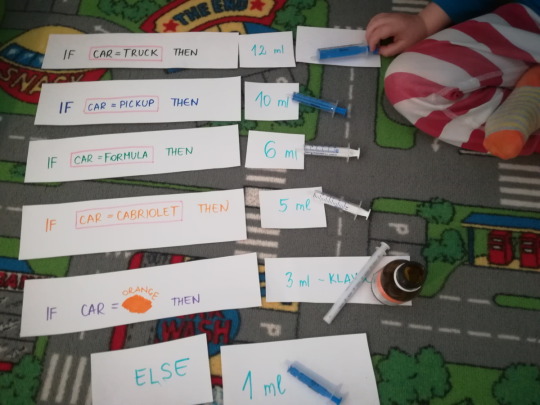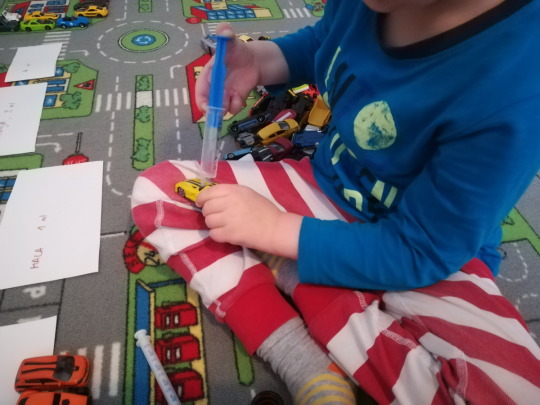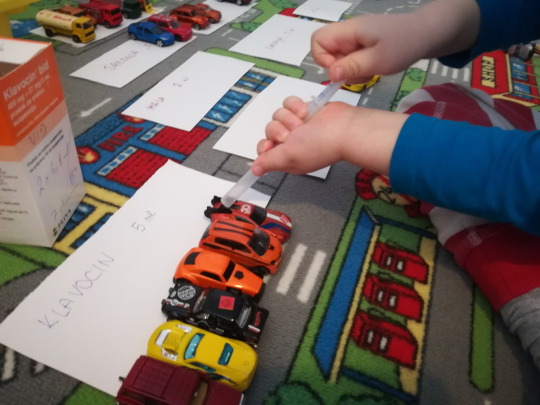Unplugged programming with Hotwheels
04/11/19
By Kristina, Code week teacher in Croatia
In primary school „Matija Gubec“ Cernik, I have planned a lot of different Code Week activities for students aged 7 to 15. Unfortunately, my 4-year-old baby boy ended up in the hospital and I had to accompany him during his stay there. As I had already prepared a lot of materials, we were using them to play at the hospital and later when we got home. At the hospital, we had been playing with Cody Roby cards. The boy is 4 years old, but he plays better than me.

In this activity, kids are practising unplugged coding – giving instructions to a ‘robot’ that it is to follow. By giving the correct instructions with given cards, a child whose programs will help the robot catch another robot and win. In the advanced version of the activity, children will need to think ahead and problem-solve by setting the entire code by cards in advance. They will also
get the opportunity to ‘debug’ if their code doesn’t work properly.
After we came home, his idea was to play like we were doctors and Hotwheels cars were patients, so in a few minutes I set up one more code week activity. I wrote a simple algorithm which told him, the doctor, how much medicine the patient had to receive.

If the vehicle was a truck, he gave it a 12 ml of medicine, if the car was a pickup, he gave it 10 ml of medicine, if the car was a formula, he gave it 6, and if the car was a convertible, he gave it 5 ml. If the car was in orange colour, he gave it another medicine and in any other case, he gave just 1 ml of medicine.

In that activity, participants learn the basic concept of an algorithm (follow the instructions) and if-then-else conditional statements. A conditional statement tells a computer (our doctor) to perform a different action (how much medicine has to be taken) depending on a specific event or another statement.

Concerning, conditional statements you can also talk to your child about various conditional real life moments like:
- if it is raining and you have to go somewhere, what will you do? (take an umbrella)
- if you play in the mud, what will happen? (dirty hands, dirty clothes)
Teaching children to code is an important activity in which they learn problem-solving skills, logic and critical thinking, i.e. the basic concept of coding and all of that without using a computer screen. We all know that is very important for young children to be without a screen as much as possible in their lives. There are so many beautiful activities in that field and the parents just have to find some good idea, like this one, set up some activity and the children will learn and play at the same time.


